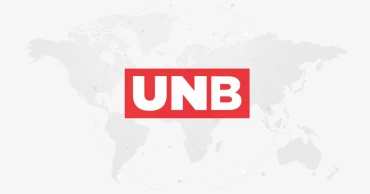technological advancement
Investment in creative economy to accelerate development: PM
Prime Minister Sheikh Hasina on Thursday said investment in the creative economy will help fulfill the collective aim of accelerating socio-economic development and technological advancement.
“We believe that investment on the creative economy will result in realization of the collective aim of furthering socio-economic development and technological advancement,” she said while addressing the Award Giving Ceremony of the first-ever UNESCO-Bangladesh Bangabandhu Sheikh Mujibur Rahman International Prize for Creative Economy.
Director General of the United Nations Educational, Scientific and Cultural Organization (UNESCO) Audrey Azoulay chaired the ceremony held at the UNESCO headquarters here.
Sheikh Hasina said she believes that UNESCO’s decision to establish the UNESCO-Bangladesh Bangabandhu Sheikh Mujibur Rahman International Prize for the Creative Economy is the most befitting tribute to his contribution to global humanity and peace.
“…what Bangladesh is today so different from what it was during the early years of independence is due to his visionary leadership and legacy,” she said.
Acknowledging the kind support of the international community in the development of the country over the decades, she said, “We also wish to contribute to the socio-economic development and technological advancement for the betterment of the global community despite our limited capacity.”
Hasina hoped that this international prize would strengthen UNESCO’s efforts in the field of creative economy, further contributing towards its global priority, that is, Gender Equality and the priority for youth as a group.
“This UNESCO-Bangladesh Bangabandhu Sheikh Mujibur Rahman International Prize will surely create a knowledge-sharing mechanism by capturing, celebrating, and communicating the best practice in the development of creative entrepreneurship,” she said.
The Prime Minister said this year Bangladesh is celebrating the Golden Jubilee of its Independence, which coincides with the ‘Mujib Year’, the birth centenary of Father of the Nation Bangabandhu Sheikh Mujibur Rahman. UNESCO is officially associated with the celebrations.
Read: Rohingya repatriation: PM seeks strong steps from world leaders
Hasina said Bangabandhu was a strong advocate of multilateralism, who treated the United Nations ‘as the centre of peoples’ future hopes and aspirations.’ Bangabandhu had similar sentiments and attributes for UNESCO as a specialized UN organ.
“The actions of Bangabandhu Sheikh Mujibur Rahman towards promoting linguistic and cultural diversity and investing in peace are similarly central to all fields of UNESCO's mandate,” she said.
Hasina said Bangabandhu’s policy decisions and establishing institutions in the field of education, culture, science and technology and leadership in establishing democracy as the cornerstone of governance in a newly-independent country are directly linked to UNESCO´s core objectives.
Immediately after the Independence in 1971, Bangabandhu made primary education compulsory for all and free, she said, adding that Bangabandhu believed that expenditure on education was the best investment and declared free schooling for girls up to grade eight.
In a war-ravaged newly-independent country with many economic challenges, Bangabandhu nationalized over 36,000 Primary schools and their more than 150,000 teachers and employees across the country. “This simple example reveals his priority for education and a knowledge-based society,” said the PM.
Following his footprints, the present Awami League government has given priority to education. “We’ve established a primary school in almost every village.”
She said the number of pre-primary and primary schools in the country is now 133, 000. Of those, 65,566 are government-run schools.
Since 2010, free books, numbering about 400 million copies, are distributed among students up to secondary level. School lunches are arranged for 2.9 million students in economically backward areas, she added.
Hasina said more than 13.03 million primary students are supported by stipends. Stipend money goes to mothers or legitimate guardians directly through their mobile phones. Another 7 million students from Secondary to higher education have been brought under various scholarships, she said.
“We’ve established Prime Minister’s Education Assistance Trust for the management of the stipend and scholarships at secondary and college levels,” she said, adding that the government has also introduced Bangabandhu Science and Technology Fellowship for pursuing MS, PhD and post-doctoral studies and researches at renowned universities at home and abroad. So far, 580 scholars have been awarded with the fellowships spending about Tk 2 billion, she added.
The government has also established 20 new public technological and general universities in the country since 2009 raising the total number of public universities to 52, she mentioned.
Read: Hasina urges UNESCO to declare online and remote learning as public good
Besides, as many as 105 private universities are offering higher education in the country. Currently, technical educational institutions are being opened in all 492 upazilas or sub-districts, she said.
The PM said these measures helped the government bring down dropouts drastically. Enrolment in pre-primary and primary level increased to 99 percent. Female-male school enrolment ratio rose to 53:47 in 2017 from 35:65 in 2009. The increasing female education has significantly lowered the rate of child marriage, she noted.
“The investment in education has started giving dividends. Bangladesh has made impressive progress on socio-economic fronts during the last one decade,” the PM added.
During the period, per capita income tripled to US$ 2,554 and poverty rate lowered to 20.3 percent from 31.5 percent, she mentioned.
Hasina said the infant mortality rate has come down to 23.67 per 1,000; maternal mortality rate to 173 per 100 thousand live births; and the average lifespan of people rose to 73 years.
Bangladesh also graduated to a developing country from an LDC this year, the PM said.
She said the Father of the Nation envisioned a Golden Bangladesh which will be economically self-reliant and free from hunger, poverty and illiteracy.
UNESCO DG Audrey Azoulay also spoke at the event, while PM’s younger sister Sheikh Rehana was present on the dais.
4 years ago

